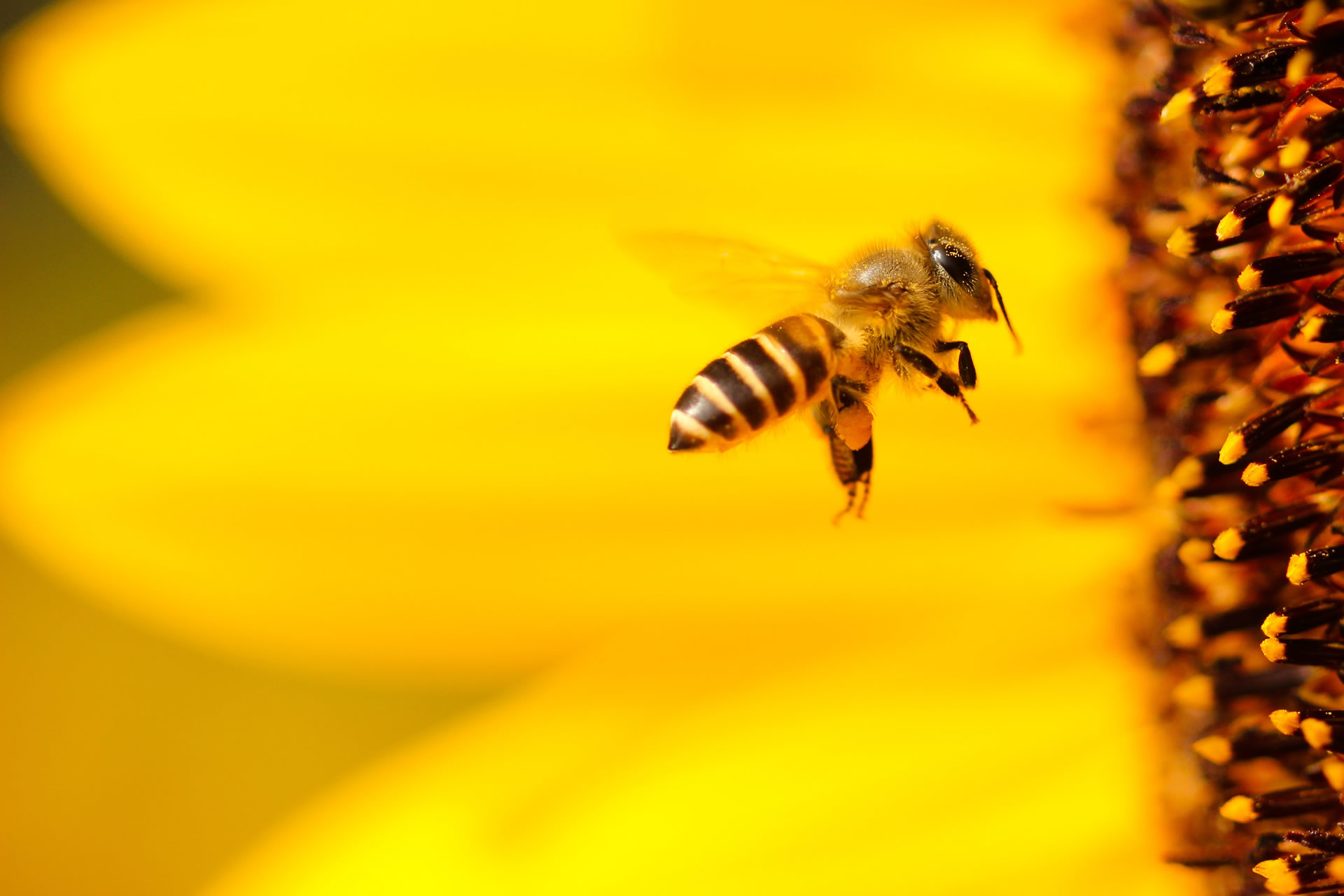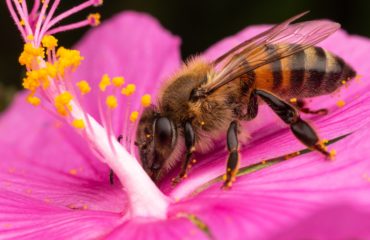Neonicotinoids, or neonics, will be banned for outdoor use in Europe thanks to environmental concerns.
The European Union plans to ban the world’s most widely used insecticides in an effort to protect bees and other valuable pollinator insects.
The ban, approved by member countries Friday, targets insecticide compounds known as neonicotinoids (also called neonics for short). The ban is expected to come into force by the end of the year and will prohibit outdoor use of the chemicals (they may still be used inside greenhouses).
Neonics were introduced in the late 1980s as a safer alternative to older insecticides that are more toxic. Yet a growing body of research has pointed to environmental problems with their use.
Neonics are very effective at destroying the nerve cells of insects that ingest them. Most corn, soy, and wheat seeds planted today are coated with neonics. But if a bird eats the seeds, they could be at risk, EPA science shows. As the crops grow, the plants incorporate the neonics into their tissues, making them poisonous to any insect that nibbles on them. Pollen, nectar, sap, and even dead leaves contain neonics.
So does the soil, and because neonics readily mix with water, they’re washed into streams, ponds, rivers, and possibly coastal zones, according to an international scientific assessment called Task Force on Systemic Pesticides.
“Neonics are 5,000 to 10,000 times more toxic than DDT,” said Jean-Marc Bonmatin of The National Centre for Scientific Research in France.
Neonics have been previously implicated in sterilizing male bees.
Not only have these insecticides been linked to dramatic declines in bees and other pollinators, they’re also suspected in declines in many other insect species, along with insect-eating birds and bats. Even important creatures like earthworms are being damaged by neonics, a four-year investigation by the task force found.
The EU had previously banned use of neonics on flowering crops that are known to specifically attract bees, noting that an estimated three quarters of important food crops may be pollinated by bees.
These insecticides are used everywhere: in homes, gardens, farms, greenhouses, orchards, parks, and forests. If a product says it will kill insects there’s a good chance it contains one of seven neonicotinoids: acetamiprid, clothianidin, imidacloprid, nitenpyram, nithiazine, thiacloprid, and thiamethoxam. (A list of products containing neonicotinoids can be found on the website for the U.S. Center for Food Safety.)
The U.S. EPA is currently re-evaluating the neonicotinoid family of pesticides, and temporarily halted the approval of new outdoor uses.
Source: National Geographics





